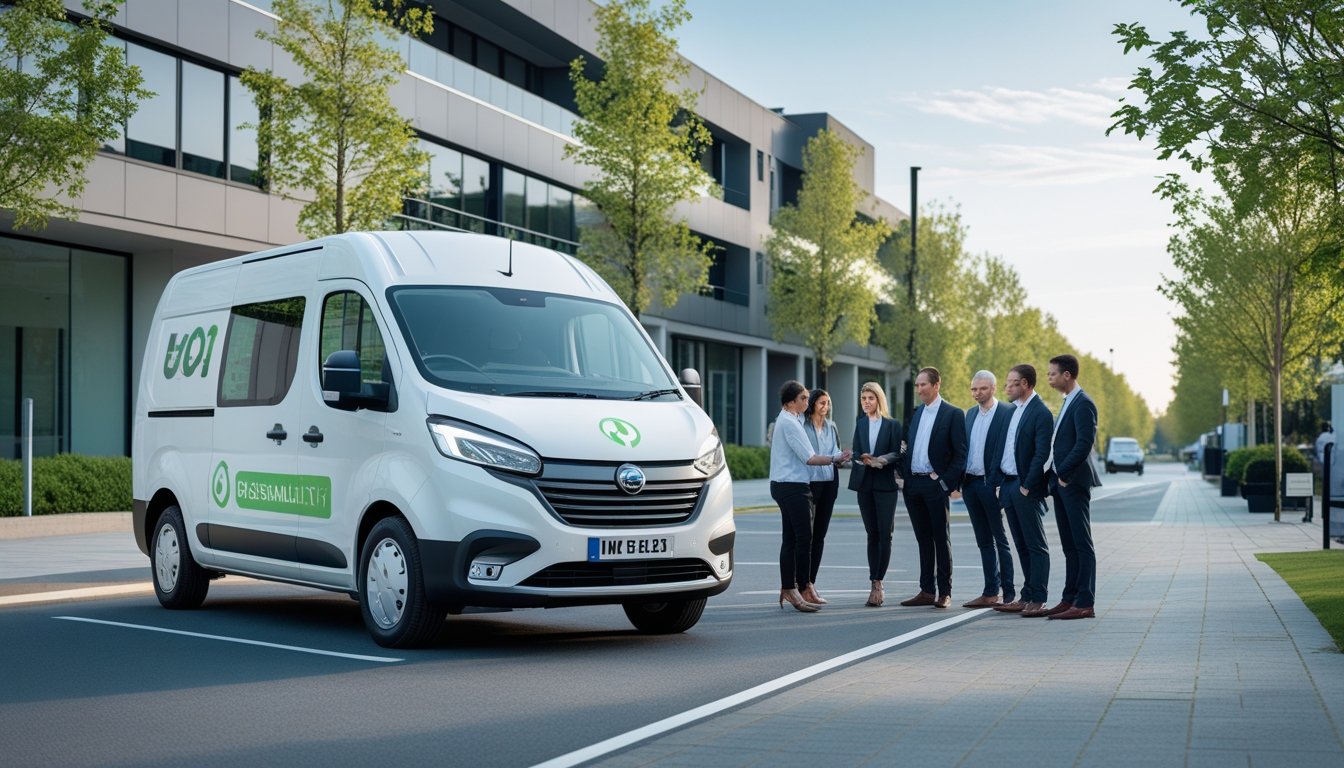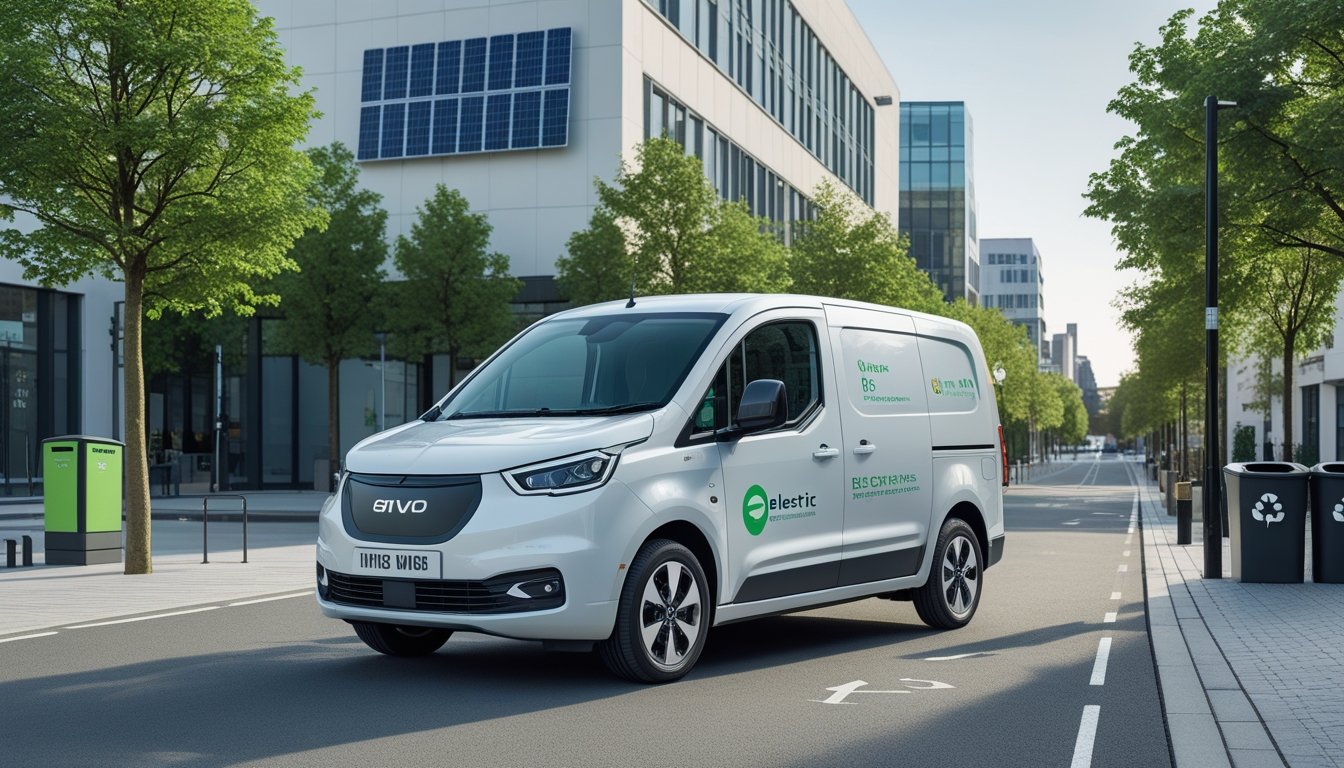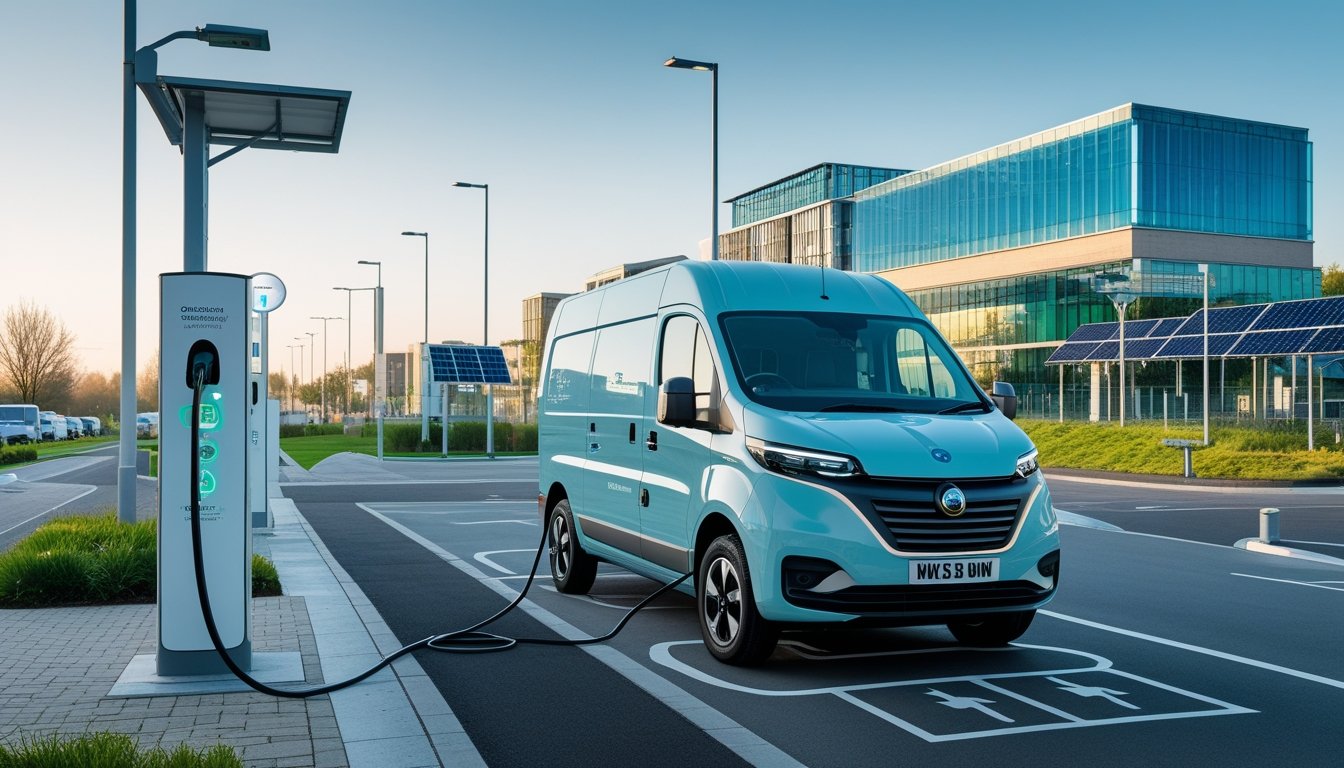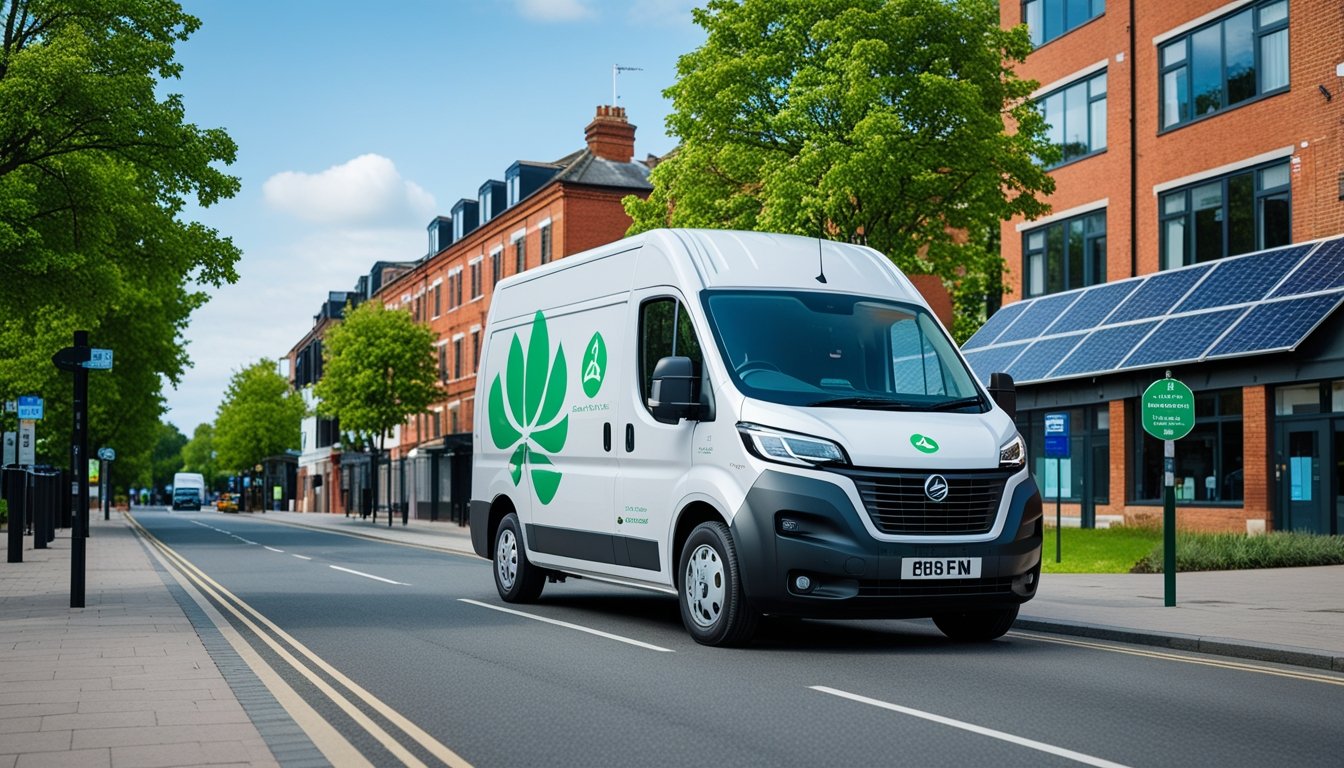Late updated: 13 Nov 2025 12:11
Written by: Amber Collins
The Role Of Electric Vans In UK Sustainability: A Crucial Step Forward
Electric vans are transforming the landscape of UK transportation and playing a pivotal role in the country's sustainability journey. As businesses and consumers alike strive to reduce their carbon footprint, electric vans emerge as an effective solution for decreasing greenhouse gas emissions. Their rising popularity is highlighted by a growing share in the market, illustrating the UK's commitment to greener transport solutions.

We observe that while diesel vans continue to dominate, the momentum of electric vans is undeniable. The UK government's initiatives and incentives have accelerated this shift, making it not only environmentally beneficial but also economically viable for businesses. By transitioning to electric vans, companies can enjoy benefits such as lower fuel and maintenance costs, which, coupled with tax incentives, make the switch appealing.
The journey toward a sustainable future is not without its hurdles. Infrastructure and technological developments are critical in supporting this transition, requiring collaborative efforts across sectors. Our exploration of the electric van's role in the UK reveals both enthusiasm and challenges as we strive for a cleaner, more sustainable transport system.
Key Takeaways
- Electric vans reduce carbon emissions and lower operational costs.
- Government initiatives drive the adoption of electric vans.
- Infrastructure improvements are essential for widespread adoption.
Key Drivers of Electric Van Adoption for UK Sustainability

Electric vans are becoming a cornerstone of the UK’s strategy for sustainable transport. As we explore the decisive factors, we see a blend of environmental goals, supportive government policies, and substantial business advantages that are driving this transition.
Reducing Emissions Through Electric Vehicles
The shift to electric vehicles, particularly vans, plays a crucial role in reducing emissions. Traditional petrol and diesel vans contribute significantly to urban pollution. By adopting electric vans, emissions are drastically reduced, directly impacting air quality. This change not only supports national sustainability targets but also enhances public health. Electric vans produce zero tailpipe emissions, cutting down on both carbon dioxide and nitrogen oxides, which are harmful to both the environment and human health. Transitioning extensive van fleets to electric not only serves environmental objectives but also sets a framework for sustainable urban transport.
Government Incentives Accelerating Adoption
Government incentives are pivotal in accelerating the adoption of electric vans. Financial benefits, such as reduced vehicle tax, grants, and subsidies, make the switch financially attractive. Policy support is demonstrated through initiatives like the ban on new petrol and diesel vehicles by 2035. These measures lower the financial barriers for businesses. Furthermore, investment in charging infrastructure enhances the feasibility of widespread electric van adoption. Government-backed schemes encourage companies to transition their fleets, aligning business objectives with national sustainability goals.
Commercial and Fleet Benefits of Electric Vans
Electric vans present substantial advantages for commercial entities and fleet operators. Their cost-effectiveness is a major draw, as electric vans generally have lower operating costs compared to their diesel counterparts. With fewer moving parts, maintenance and repair costs are reduced. Additionally, electricity as a fuel is less expensive than diesel, yielding savings in running costs. Beyond financial benefits, operating an electric van signals a commitment to sustainability. For businesses, this is not just about economic gain; it enhances corporate social responsibility and can improve public perception. The availability of varied electric van models caters to diverse business needs, making them a viable option for many sectors.
Overcoming Infrastructure and Technology Challenges

Our transition to using electric vans in the UK for sustainable transport faces several infrastructure and technology challenges. Key aspects include enhancing the charging infrastructure, advancing battery technology and range, and integrating smart charging solutions.
Enhancing Charging Infrastructure Across the UK
The expansion of charging infrastructure is critical for the adoption of electric vans. We must ensure that charging stations are accessible across the country, particularly in remote and rural areas. This could involve partnerships between public and private sectors to install more EV charging points along motorways and in urban centres.
Funding and policy support from the government could drive this expansion, alongside incentives for businesses to install chargers. Fast-charging stations are essential for reducing downtime for commercial van fleets, allowing them to maintain productivity while contributing to environmental goals. We need to address location-specific issues such as grid capacity and electricity demand management.
Advances in Battery Technology and Range
Battery technology remains a crucial factor in the viability of electric vans. Significant advancements in battery efficiency and energy density are vital for extending the range of electric vehicles. By investing in research and development, we can push the boundaries of current technology.
Recent innovations have focused on reducing battery weight and increasing charge speed, which enhances the overall performance of electric vans. Research into solid-state batteries and alternative materials may provide breakthroughs in range and cost-effectiveness. Supporting domestic manufacturing of these advanced batteries could further secure a sustainable supply chain within the UK.
Integrating Smart Charging Solutions
Smart charging solutions are integral to optimising the use of electric vans. By integrating smart charging technology, we can manage energy consumption more efficiently and reduce strain on the national grid. Smart chargers can be programmed to operate at off-peak times, taking advantage of cheaper electricity rates.
Features like dynamic load management adjust the charging speed based on grid demand and capacity. Fleet operators benefit from data-driven insights through connectivity, allowing for enhanced predictability and planning of fleet operations. Embracing these technologies requires investments in digital infrastructure and training for operators to maximise their potential.
Frequently Asked Questions

In our exploration of electric vans in the UK, we encounter various queries regarding their environmental benefits, economic incentives, and infrastructure support. Understanding advancements in battery technology and policy impacts are crucial as well.
How are electric vans contributing to the reduction of carbon emissions in the UK?
Electric vans significantly lower carbon emissions compared to their diesel counterparts. By utilising electricity for propulsion, these vehicles avoid direct emissions, playing a vital role in the UK's efforts to meet its climate obligations. This transition helps reduce the overall carbon footprint of commercial transportation.
What incentives are available for businesses transitioning to electric vans in the UK?
The UK government offers numerous incentives to encourage businesses to adopt electric vans. These include grants to offset purchase costs, exemptions from certain taxes, and access to low-emission zones without fees. These financial benefits make the shift to electric vans more attractive.
What are the expected long-term impacts of the widespread adoption of electric vans on UK air quality?
The widespread adoption of electric vans is expected to improve UK air quality substantially. By reducing reliance on diesel-fuelled transport, the production of harmful pollutants like nitrogen oxides and particulates decreases. This shift should result in cleaner urban environments and better public health outcomes.
How does the infrastructure in the UK support the charging needs of electric vans?
The UK has been rapidly expanding its charging network. Numerous public charging points are strategically placed in cities and along major routes to support electric van operations. The development of high-speed chargers also ensures minimal downtime, enhancing the viability of electric vans for businesses.
What advancements in battery technology are benefiting the range and efficiency of electric vans in the UK?
Recent advancements in battery technology include increased energy density and faster charging capabilities. These improvements extend the operational range of electric vans and reduce charging times. Such enhancements make electric vans more practical for the daily demands of business operations in the UK.
How are British policies and regulations shaping the adoption rate of electric vans?
British policies, such as the Zero Emission Vehicle (ZEV) mandate, are crucial in shaping electric van adoption. These regulations set clear targets for phasing out traditional internal combustion engine vehicles. Government aims to transition entirely to electric new van sales by 2035 are incentivising businesses to adapt accordingly.
